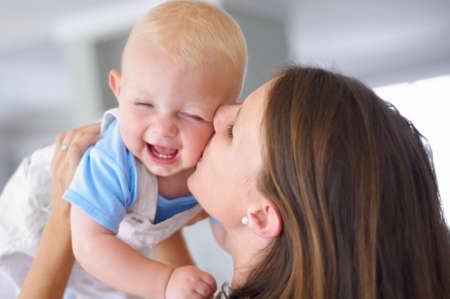1. Understanding the Four Main Parenting Styles
When it comes to raising children, parenting styles play a crucial role in shaping their development, behavior, and emotional well-being. Researchers have identified four widely recognized parenting styles: authoritative, authoritarian, permissive, and uninvolved. Each of these styles has its own unique approach to discipline, communication, and expectations. Lets take a closer look at each one.
Authoritative Parenting
Authoritative parents set clear rules and expectations while maintaining a warm and supportive relationship with their children. They encourage open communication and allow their kids to express their thoughts and feelings.
Key Characteristics:
- High expectations with clear boundaries
- Encourages independence while providing guidance
- Uses positive reinforcement and fair discipline
- Open and respectful communication
Impact on Child Development:
Children raised by authoritative parents tend to develop strong social skills, self-discipline, and high self-esteem. They are often independent thinkers who feel secure in their relationships.
Authoritarian Parenting
Authoritarian parents enforce strict rules with little flexibility. They expect obedience without question and often use punishment as a primary method of discipline.
Key Characteristics:
- High expectations with rigid rules
- Little room for negotiation or open dialogue
- Discipline is often harsh or punitive
- Emphasis on obedience and structure
Impact on Child Development:
Children raised in an authoritarian environment may struggle with low self-esteem, anxiety, and difficulty making decisions. While they may perform well academically or follow rules strictly, they might lack strong problem-solving skills or confidence in expressing themselves.
Permissive Parenting
Permissive parents are highly responsive but set few boundaries. They prioritize their childs happiness over enforcing rules, often acting more like a friend than a parent.
Key Characteristics:
- Few rules or expectations
- Nurturing and highly responsive to childrens needs
- Avoids confrontation and discipline
- Tends to give in to childrens demands easily
Impact on Child Development:
Children raised by permissive parents may struggle with self-regulation, responsibility, and authority figures outside the home. While they often have high self-esteem, they may also exhibit impulsive behaviors or difficulty following rules.
Uninvolved Parenting
Uninvolved parents provide minimal interaction, support, or guidance for their children. They may meet basic physical needs but are emotionally distant or disengaged.
Key Characteristics:
- Lack of responsiveness or involvement in childs life
- Minimal supervision or guidance
- No clear expectations or rules
- Poor communication between parent and child
Impact on Child Development:
Children raised by uninvolved parents may experience emotional insecurity, low self-esteem, and difficulty forming healthy relationships. Without parental guidance, they might struggle academically and socially.
Comparison of Parenting Styles
| Parenting Style | Main Approach | Impact on Children |
|---|---|---|
| Authoritative | Balanced approach with structure and warmth | Confident, independent, well-adjusted |
| Authoritarian | Strict rules with little flexibility | Anxious, obedient but less independent |
| Permissive | Nurturing but lacks structure or discipline | Sociable but struggles with self-control |
| Uninvolved | Lacks engagement or guidance in childs life | Difficulties in emotional and social development |
No single parenting style is perfect for every family. Understanding these four approaches can help you reflect on your own parenting methods and make adjustments that best support your childs growth and well-being.
2. The Pros and Cons of Authoritative Parenting
Authoritative parenting is often seen as the ideal balance between warmth and discipline. This approach encourages independence while maintaining clear rules and expectations. Parents who follow this style provide guidance, set boundaries, and foster open communication with their children. But like any parenting style, authoritative parenting has both advantages and challenges.
The Benefits of Authoritative Parenting
One of the biggest advantages of authoritative parenting is that it helps children develop confidence and independence. By offering support while also enforcing rules, parents create a structured yet nurturing environment. Here are some key benefits:
| Pros | Description |
|---|---|
| Encourages Independence | Children learn to make decisions while still having parental guidance. |
| Boosts Self-Esteem | A combination of support and structure helps kids feel confident in themselves. |
| Promotes Strong Communication | Parents encourage open discussions, allowing children to express their thoughts and feelings. |
| Teaches Responsibility | Kiddos understand the consequences of their actions in a fair and supportive way. |
The Challenges of Authoritative Parenting
While authoritative parenting has many benefits, it does come with its own set of challenges. Maintaining consistency and setting clear boundaries can sometimes be difficult for parents. Here are some common struggles:
| Cons | Description |
|---|---|
| Requires Consistency | This approach demands constant effort from parents to enforce rules fairly and consistently. |
| Takes Time and Patience | Nurturing open communication while setting boundaries requires ongoing effort. |
| Difficult During Stressful Situations | Balancing warmth and discipline can be challenging when emotions run high. |
Finding the Right Balance
The key to successful authoritative parenting is finding the right balance between guidance and independence. While it may take time to establish routines and enforce boundaries, the long-term benefits often outweigh the challenges. By fostering an environment where children feel supported yet responsible for their actions, parents can help their kids grow into confident, capable individuals.
![]()
3. The Pros and Cons of Authoritarian Parenting
Authoritarian parenting is a strict, rule-based approach where parents set high expectations and enforce discipline without much flexibility. This style prioritizes obedience, structure, and order but can also come with challenges. Lets explore both the benefits and potential drawbacks of authoritarian parenting.
Pros of Authoritarian Parenting
- Clear Rules and Structure: Children raised in an authoritarian household typically know what is expected of them, which can create a sense of stability.
- Strong Discipline: This parenting style enforces rules consistently, helping children develop self-control and respect for authority.
- Academic and Behavioral Success: Because of high expectations, children may be more likely to perform well in school and follow societal norms.
Cons of Authoritarian Parenting
- Lack of Emotional Connection: The emphasis on rules over communication can lead to emotional distance between parents and children.
- Increased Pressure on Children: High expectations without room for flexibility can cause stress, anxiety, or fear of failure.
- Poor Decision-Making Skills: Since authoritarian parents make most decisions for their children, kids may struggle with independence and problem-solving.
Comparison of Authoritarian Parenting Pros and Cons
| Pros | Cons |
|---|---|
| Provides structure and clear expectations | Can create emotional distance between parent and child |
| Encourages discipline and self-control | Might lead to increased pressure and anxiety in children |
| Often results in academic success | Keeps children from developing strong decision-making skills |
Is Authoritarian Parenting Right for Your Family?
This parenting style works well for families that value structure, discipline, and order. However, it’s important to balance rules with warmth to ensure children feel emotionally supported. If you choose this approach, consider incorporating open communication to foster a stronger parent-child relationship while maintaining necessary boundaries.
4. The Pros and Cons of Permissive Parenting
Permissive parenting is a relaxed and nurturing style where parents give their children a lot of freedom with minimal rules or expectations. This approach fosters creativity and independence, but it also raises concerns about setting limits and maintaining discipline. Let’s take a closer look at the advantages and disadvantages of permissive parenting.
How Permissive Parenting Encourages Creativity and Independence
One of the biggest benefits of permissive parenting is that it allows children to explore their interests freely. Without strict rules or rigid structures, kids have the opportunity to develop creative problem-solving skills and a strong sense of independence.
Key Benefits:
- Encourages Self-Expression: Children feel comfortable sharing their thoughts, emotions, and ideas without fear of punishment.
- Fosters Creativity: Without constant supervision, kids can experiment, make mistakes, and learn from them in a natural way.
- Builds Strong Parent-Child Relationships: A warm, open dynamic helps children feel secure and understood.
- Promotes Independence: Kids learn to make decisions on their own rather than relying on external authority.
The Challenges of Setting Limits and Maintaining Discipline
While permissive parenting has its advantages, it can also lead to challenges in discipline. Without clear boundaries, children may struggle with self-control, respect for authority, and understanding consequences.
Main Concerns:
- Lack of Structure: Without clear rules, children may struggle with routines or responsibilities.
- Poor Understanding of Boundaries: Kids might expect unlimited freedom without recognizing the need for limits.
- Difficulties with Authority Figures: Children who are used to making their own decisions may have trouble following rules at school or in social settings.
- Poor Self-Discipline: Without guidance, some kids might develop habits of procrastination or avoidance of responsibilities.
A Balanced Approach: Finding Middle Ground
If you resonate with the benefits of permissive parenting but worry about the downsides, finding a balance can be key. Here’s a comparison between permissive parenting and a more balanced approach that incorporates some structure while maintaining warmth:
| Permissive Parenting | Balanced Approach | |
|---|---|---|
| Rules & Boundaries | Minimal or flexible rules | Clear expectations with room for flexibility |
| Discipline Style | Avoids strict punishments | Nurturing but firm discipline methods |
| Independence & Freedom | A lot of freedom with little intervention | A mix of guidance and autonomy based on age & maturity |
| Parent-Child Relationship | Friendly and nurturing but lacks authority | Loving yet structured relationship with mutual respect |
No parenting style is perfect, and every family is different. Understanding both the strengths and challenges of permissive parenting can help you decide how much freedom you want to give your child while ensuring they develop responsibility and self-discipline.
5. The Pros and Cons of Uninvolved Parenting
Uninvolved parenting, also known as neglectful parenting, is characterized by a lack of responsiveness to a childs needs and minimal communication. Parents who adopt this style may provide for basic necessities like food and shelter but are generally disengaged from their childs emotional and social development. While some children may develop independence in such an environment, there are significant risks associated with uninvolved parenting.
Effects of a Lack of Parental Involvement
Children thrive on attention, guidance, and emotional connection. When parents are uninvolved, children may struggle with:
- Low self-esteem: Without parental encouragement, children may feel unimportant or neglected.
- Poor academic performance: A lack of guidance can result in difficulties at school due to insufficient support.
- Difficulty forming relationships: Emotional detachment from parents can lead to trouble connecting with peers and authority figures.
- Higher risk of behavioral issues: Without structure and supervision, children may develop poor decision-making skills.
Potential Risks of Uninvolved Parenting
The long-term consequences of uninvolved parenting can be serious. Below is a table summarizing the potential risks associated with this parenting style:
| Risk Factor | Description |
|---|---|
| Emotional Detachment | Lack of emotional support can cause children to struggle with trust and forming close relationships. |
| Poor Academic Success | A lack of parental involvement often leads to lower grades and decreased motivation in school. |
| Increased Behavioral Problems | Children without guidance may engage in risky behaviors or have trouble following rules. |
| Mental Health Challenges | An absence of emotional support can contribute to anxiety, depression, or feelings of loneliness. |
Strategies for Creating a More Engaged Parenting Approach
If you find yourself struggling with being emotionally present for your child, there are ways to become more engaged while still fostering independence:
- Create small moments of connection: Even brief daily interactions, like asking about their day or reading together, can strengthen bonds.
- Set clear expectations: Providing structure helps children feel secure and understand boundaries.
- Avoid distractions: Make time for quality interactions by limiting phone use or work during family moments.
- Tune into their emotions: Show interest in their thoughts and feelings to help them feel valued and heard.
- Create a safe space for communication: Encourage open conversations where your child feels comfortable sharing concerns without fear of judgment.
A shift toward greater involvement doesn’t require drastic changes overnight. Small steps toward engagement can significantly impact a child’s emotional well-being and overall development.
6. Choosing the Best Parenting Style for Your Family
Every family is unique, and there’s no one-size-fits-all parenting style. The key is to assess your family dynamics, understand your child’s needs, and find an approach that fosters their growth and well-being. You may even find that blending different parenting styles works best for your household.
Assessing Your Family Dynamics
Before deciding on a parenting style, take a step back and evaluate your family’s values, communication patterns, and daily routines. Ask yourself:
- What are my child’s temperament and emotional needs?
- How do I typically handle discipline and guidance?
- What kind of relationship do I want to build with my child?
- Are there cultural or personal values influencing my approach?
Blending Parenting Styles
You don’t have to stick to just one parenting style. Many parents find success in combining elements from different approaches to create a balanced method that works for their family. Here’s a quick comparison of how you can blend various styles:
| Parenting Style | Best Qualities | How to Blend It |
|---|---|---|
| Authoritative | Encourages independence while maintaining clear boundaries | Use firm but fair rules while fostering open communication with your child. |
| Permissive | Nurturing and supportive, allowing children to express themselves freely | Add structure by setting expectations while still promoting emotional warmth. |
| Authoritarian | Cultivates discipline and respect for authority | Avoid being overly strict; instead, incorporate some flexibility and understanding. |
| Uninvolved | Avoids unnecessary pressure on children | If you tend to be hands-off, add more engagement by being present in your child’s daily activities. |
Adapting as Your Child Grows
Your child’s needs will change over time, so it’s essential to stay flexible with your parenting approach. What works for a toddler may not be effective for a teenager. Regularly check in with yourself and your child to see if adjustments are needed.
A Few Ways to Adapt Your Parenting Approach:
- Toddlers: Focus on consistency and gentle guidance.
- Younger kids: Encourage independence while maintaining clear expectations.
- Tweens & Teens: Allow more autonomy but keep communication open and supportive.
The most important thing is to ensure that your parenting style supports your child’s emotional well-being while aligning with your family’s values. By staying open-minded and adaptable, you can create a nurturing environment where your child thrives.


